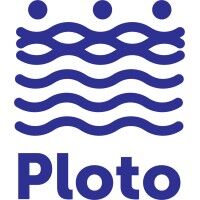
Period: 01.09.2022 – 28.02.2026
Funding SOURCE: Horizon EUROPE
TOTAL BUDGET: 8.715.422 €
PROJECT COORDINATOR: NETCOMPANY – INTRASOFT
GEMMA COORDINATOR: prof. dr. Domen Mongus
PROJECT PARTNERS: NETCOMPANY-INTRASOFT SA, EXUS Software Monoprosopi Etairia Periorismenis Evthinis, Budapesti Muszaki Es Gazdasagtudomanyi Egyetem, Univerza V Mariboru, Diadikasia Business Consulting Symvouloi Epicheiriseon AE, Radios Segelyhivo Es Infokommunikacios Orszagos Egyesulet, Universite De Liege, Regia Autonoma Administratia Fluviala A Dunarii De Jos Galati, Universitatea Danubius Din Galati, Asociatia Romanian River Transport Cluster, MAV Magyar Allamvasutak Zartkoruen Mukodo Reszveny Tarsasag, Ethnicon Metsovion Polytechnion, RISA Sicherheitsanalysen GmbH, Budapesti Szabadkikoto Logisztikai Zartkoruen Mukodo RT, Ilmatieteen Laitos, Societal Resilience And Climate Change Center Of Excellence, Service Public De Wallonie, Aristotelio Panepistimio Thessalonikis, European Road Transport Telematics Implementation Coordination Organisation – Intelligent Transport Systems & Services Europe, Satways-Olokliromenes Lyseis Asfaleias Kai Amynas-Idiotiki Epicheirisi Parochis Ypiresion Asfaleias (IEPYA)-Etaireia Periorismenis Efthynis
Project website: PLOTO-PROJECT
LINKEDIN: PLOTO
Deployment and Assessment of Predictive modelling, environmentally sustainable and emerging digital technologies and tools for improving the resilience of IWW against Climate change and other extremes
Abstract:
PLOTO aims at increasing the resilience of the Inland WaterWays (IWW) infrastructures and the connected land- infrastructures, thus
ensuring reliable network availability under unfavourable conditions, such as extreme weather, accidents and other kind of hazards.
Our main target is to combine downscaled climate change scenarios (applied to IWW infrastructures) with simulation tools and actual
data, so as to provide the relevant authorities and their operators with an integrated tool able to support more effective management
of their infrastructures at strategic and operational levels.
Towards this direction, PLOTO aims to:
– use high resolution modelling data for the determination and the assessment of the climatic risk of the selected transport
infrastructures and associated expected damages;
– use existing data from various sources with new types of sensor-generated data (computer vision) to feed the used simulator;
– utilize tailored weather forecasts (combining seamlessly all available data sources) for specific hot-spots, providing early warnings
with corresponding impact assessment in real time;
– develop improved multi-temporal, multi-sensor UAV- and satellite-based observations with robust spectral analysis, computer vision
and machine learning-based assessment for diverse transport infrastructures;
– design and implement an integrated Resilience Assessment Platform environment as an innovative planning tool that will permit a
quantitative resilience assessment through an end-to-end simulation environment, running “what-if” impact/risk/resilience
assessment scenarios. The effects of adaptation measures can be investigated by changing the hazard, exposure and vulnerability
input parameters;
– design and implement a Common Operational Picture, including an enhanced visualisation interface and an Incident Management
System.
The PLOTO integrated platform and its tools will be validated in three case studies in Belgium, Romania and Hungary.

